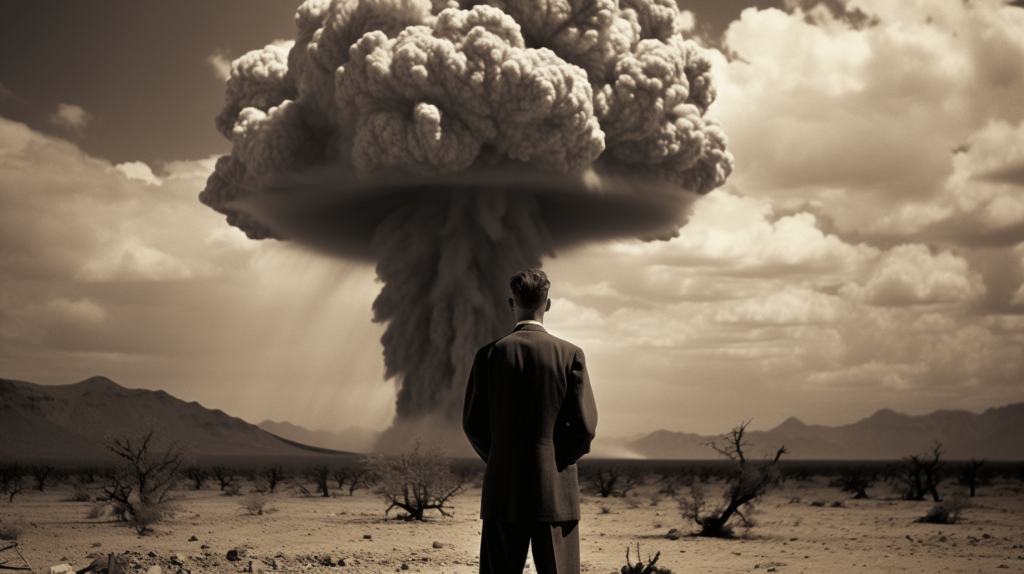Truth & Goodness
Sickles, Hammers, and Dollars: The Capitalist Miracle of “Red” Vietnam
01 March 2026

Albert Camus (1913-1960), the French existentialist, once wrote: “Not everyone must be a great man. To be human is already a significant achievement.” Many individuals—be they explorers, scientists, leading politicians, or artists—have inscribed their names in history through their notable achievements. However, does this solely define their human worth? History often reveals that these eminent figures tread a fine line between heroism and tragedy. They have experienced both victories and setbacks, inspiring many while sometimes becoming ensnared by political or societal dynamics. Often, their path from greatness and fame to downfall and defeat was surprisingly short.
Michel Foucault (1926-1984), the French philosopher, historian, and deconstructivist posited that knowledge inherently equates to power. He believed knowledge was not just merely an attribute or privilege but a strategy of action. He noted, “Power cannot function without knowledge, and knowledge invariably leads to power. It’s essential to recognize that power shapes knowledge; they are fundamentally connected. Every exertion of power is rooted in some form of knowledge, and every piece of knowledge inherently carries with it elements of power.” The question of the relationship between knowledge, seen as the result of scientific study, and power understood as political influence, is revisited in Christopher Nolan’s “Oppenheimer.”
A scientist’s role revolves around expanding knowledge through persistent research and experiments. However, for those at state universities, research hinges on governmental support and funding. This mutual reliance is clear, but “Oppenheimer” also delves into its potential hazards. State-funded research, to the tune of US$2bn over three years, led to the construction of the atomic bomb. This prompts the question: should the pursuit of knowledge result in such power?
This interdependence also raises questions about scientists’ responsibility for their discoveries. In 1942, Robert Oppenheimer, an American physicist at the University of Berkeley, was invited to contribute to the then-emerging “Manhattan Project.” This offered him an unparalleled chance to gather elite physicists from Europe and the U.S. and to secure research funding otherwise unattainable. Yet, could he have anticipated the outcomes and the eventual application of his findings?
For the project, a secure research facility was established near Los Alamos, New Mexico. Here, four departments emerged: Theoretical Physics, Experimental Physics, Chemistry and Metallurgy, and Explosive Materials. Guided by Oppenheimer, the team realized the successful detonation of an atomic bomb in 1945 during the Trinity experiment. This development contributed to its use by the U.S. on Hiroshima and Nagasaki. Is Oppenheimer morally culpable for these events? Such a question is one of many provoked by this film.
At its core, a scientist’s mission is to seek knowledge. But does that extend to responsibility for its future application? Perhaps Foucault was right, suggesting that every researcher, when embarking on their studies, should bear in mind that every piece of acquired knowledge equates to power. Given this, can science accommodate idealists, those committed solely to knowledge without heed to the broader political and financial landscapes?

“Oppenheimer” invites us to ponder if every stride in progress equates to success. This query carries a deep-seated paradox. On its surface, advancing—be it through research, discovery, or expanding human knowledge—seemingly marks a positive trajectory for humanity. However, when assessing the implications and our present understanding of Oppenheimer’s discovery’s application, its unequivocal success becomes ambiguous. It is clear in a scientific context, but morally? The answer is less definite.
Friedrich Nietzsche (1844‒1900), a notable philosopher, may provide some clarity. He argued that creation and destruction coexist as inseparable facets of existence, as two sides of the same coin. For him, the world inherently merges constructive and destructive forces. In his perspective, the world is structured in such a way that it is impossible to disentangle the constructive force from the destructive one. Chaos and order are dual manifestations of the will to power. Destroying what exists simultaneously paves the way for what is yet to come. He asserted, “Creation and decay, construction and deconstruction, devoid of any moral judgment and perpetually innocent, characterize the playful endeavors of the artist and the child in this world.” This metaphor of the ‘playfulness of the artist and child,’ prepared to tear something down to erect something new might echo in Oppenheimer. Yet, a lingering question persists: can such actions truly evade moral scrutiny?
Nolan’s film adaptation draws heavily from the book “American Prometheus” by Kai Bird and Martin J. Sherwin. The early inclusion of mythical references imbues the narrative with added depth. Nolan’s intent is evident: the narrative is not solely about the atomic bomb but centers on a man who, perhaps recklessly, reached for the forbidden, entrusted it to others, and spent a lifetime grappling with the aftermath of his choices.
Prometheus, as depicted in Greek mythology, emerges as a champion who selflessly acts for humanity’s welfare. Yet, one could also perceive him as an overconfident figure, neglecting the world’s inherent order. By seizing what the gods deemed off-limits, he defied their edicts, effectively becoming a mere thief. His motives may have been seemingly noble and rooted in humanity’s benefit, but does this truly justify his actions?
The comparison of Oppenheimer to Prometheus is compelling. Was Oppenheimer motivated solely by the curiosity and drive of a devoted scientist, pushing the bounds of knowledge (regardless of the consequences)? Or did he potentially overreach, placing himself on a divine pedestal? Determining his exact motivations is intricate, but the outcomes of his actions echo Prometheus’s narrative: both endured consequences for their lack of humility and boundless ambitions.
Nolan’s film delves into timeless debates about human agency, the limits of our aspirations, and the responsibility and fallout of our choices. How do individual actions influence the broader collective? What price do we pay for mistakes, even those unforeseen? Such queries resist simple answers, given their complexity. However, “Oppenheimer” undeniably prompts introspection, challenging viewers to confront pressing ethical dilemmas. Nolan’s mastery in addressing these themes warrants respect and recognition. The film’s profound message might be best encapsulated by words from English writer Joseph Conrad (1857-1924): “Man is remarkable, yet not a masterpiece.”
Read more on Holistic News
Truth & Goodness
01 March 2026



Zmień tryb na ciemny